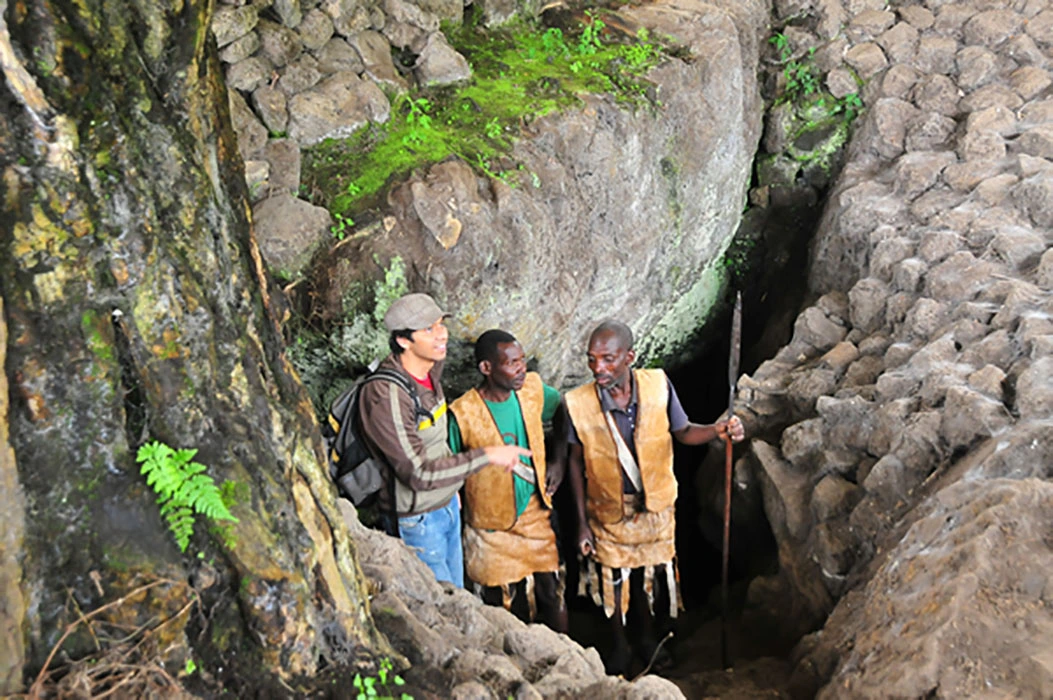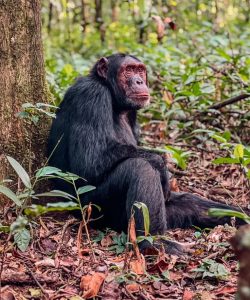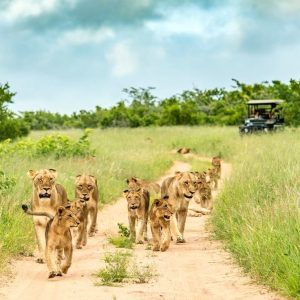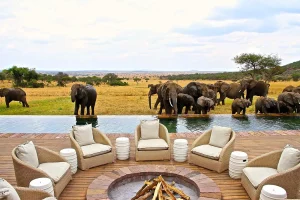The Batwa Experience in Uganda
The Batwa pygmies were forcibly removed from Mgahinga National Park and the impenetrable forest of Bwindi in the early 1930s and subsequently in the 1990s. Batwa tribe hunted and collected fruit to survive for thousands of years in the thick forests of these two national parks. The British colonial era was the first step toward the end of the Batwa forest’s dominance. The Batwa were viewed as poachers by Uganda’s colonial authorities and subsequent governments, who recognized the urgent need to save the rare and endangered mountain gorillas that lived in the woods of Bwindi [formerly known as Echuya] and Mgahinga. The Batwa Experience in Uganda
In the Districts of Kanungu, Kabale, and Kisoro, the first Batwa were compelled to give up their cultural history, traditions, and way of life in order to live in a few chosen camps and villages outside the two forests/parks. The government and other local and international groups have worked hard to help ensure a seamless transition to their new settlements, but things haven’t gone as planned.
The Origins of the Twa Tribe “Keepers of the Forest”
The Twa tribe’s elders have a fascinating story regarding the origins of the Batwa. Additionally, you will get a front-row seat to hear this incredible story during the Batwa cultural experience that follows the Uganda Gorilla trekking in Bwindi National Park. According to legend, there was a man named Kihanga. Katutsi, Kahutu, and Katwa are the names of his three sons, respectively.
This father tested his sons’ maturity by assigning them the duty of defending milk gourds. All night long, the guys held the gourds. Additionally, their father called them in the morning to see how they were doing. Unfortunately, Katwa’s milk gourd was empty, Kahutu’s was half full, and Katusi’s was still whole.
As a result, the father gave them what they were due.
To assist Katutsi and his kids succeed, the father first blessed him with all of his cows. In order to assist Kahutu and future generations grow their food and prosper, he also handed him seeds and a hoe. Eventually, Katwa managed to capture the forest and all within it. Hunting and harvesting wild fruits were to be his and subsequent generations’ means of subsistence. The Batwa eventually settled in the forest in this manner.
Facts about Bwindi National Park’s Batwa Pygmies
One intriguing neglected group in the nation is the endangered Batwa Pygmies. Additionally, as cultural experience travel is one of the main attractions for tourists on safaris in Uganda. It is only fitting that you become more knowledgeable about the Batwa. The Batwa Experience in Uganda
A Few Details about This Twa Tribe Are As follows:
- The Uganda Bureau of Statistics projects that as of 2022, there will be about 6700 Batwa. Wide-ranging consequences have resulted from the loss of their original forest home. For instance, it made it impossible for the Batwa to use the forest’s traditional herbal treatments. The Batwa Pygmy population remains vulnerable as a result of all these reasons.
- The Batwa were forced to leave their forest home when Bwindi Impenetrable National Park, Mgahinga Gorilla National Park, and Echuya Central Forest Reserve were gazetted in order to protect the mountain gorillas.
- The Batwa filed a constitutional claim on February 8, 2013, asking for reparations for long-standing human rights abuses and recompense for their lands.
- In a historic ruling on August 19, 2021, the constitutional court determined that government officials had forcibly removed Batwa from their ancestral lands in Kabale, Kanungu, and Kisoro districts between the 1930s and 1990s without their consent in order to make way for the preservation of animals and forests.
- The Ugandan Batwa is on the verge of extinction due to the extraordinary cultural shift that followed their deportation. Their limited population, and their hated status! The Coalition of Pastoral Civil Society Organizations (COPACSO), a Uganda Land Alliance, warned in 2006 that the country’s few thousand Batwa were in danger of going extinct. The report from this organization raised concerns about the Twa’s lack of social cohesiveness
The height of the Ugandan Batwa Pygmy and the Batwa people
Generally speaking, Batwa people are short. Batwa males typically stand at 60.1 inches (152.9 cm) tall. Many tourists that see the Batwa during a cultural trip following their trekking with the Bwindi Gorillas find the Batwa height to be quite noticeable.
Conversely, Twa women are typically 57.4 inches, or 145.7 centimeters, tall. Malnutrition.
The average adult height of some Batwa in Uganda’s Bwindi Impenetrable Forest is several inches less than that of neighboring tribes. For instance, the tallest guy in the Batwa community would be the smallest in the Bakiga, a nearby community.
The Language of Batwa
Rutwa is spoken by the Batwa Pygmies of Bwindi and other places. Nonetheless, the Batwa speak different dialects according on where they reside. For instance, the Batwa speak Rukiga among the Bakiga. You will be able to hear the Batwa tribe speak these languages while on your cultural safari in Bwindi National Park. Additionally, you will fully immerse yourself in the Batwa Pygmies’ native culture.
The Trail of Batwa
Visitors get a rare chance to interact with the native Batwa people who inhabited the Mgahinga forest through the Batwa Trail. The Batwa route, in contrast to the Batwa Cultural Experience. Leads tourists further into the forest to view the Batwa’s historic caves, hunting sites, and hideouts.
Batwa guides describe how they hunted and collected food. How they adapted to their forest environment, and the traditional usage of numerous plants. The trail experience includes demonstrations of traditional tasks including hunting, gathering, and building fires.
The trail leads to the Ngarama Cave, which the Batwa used as a shelter, and ends on the lower slopes of Mount Mgahinga. Guides inside the cave tell tales and perform customs related to their stay in these natural havens.
How much does the Batwa Trail cost?
For a cultural experience in Mgahinga Gorilla National Park. The Batwa Trail costs $80 per person, which includes admission to the park, Batwa guides, and a cultural performance. The Batwa Trail costs $40 per person in Bwindi Impenetrable National Park.




